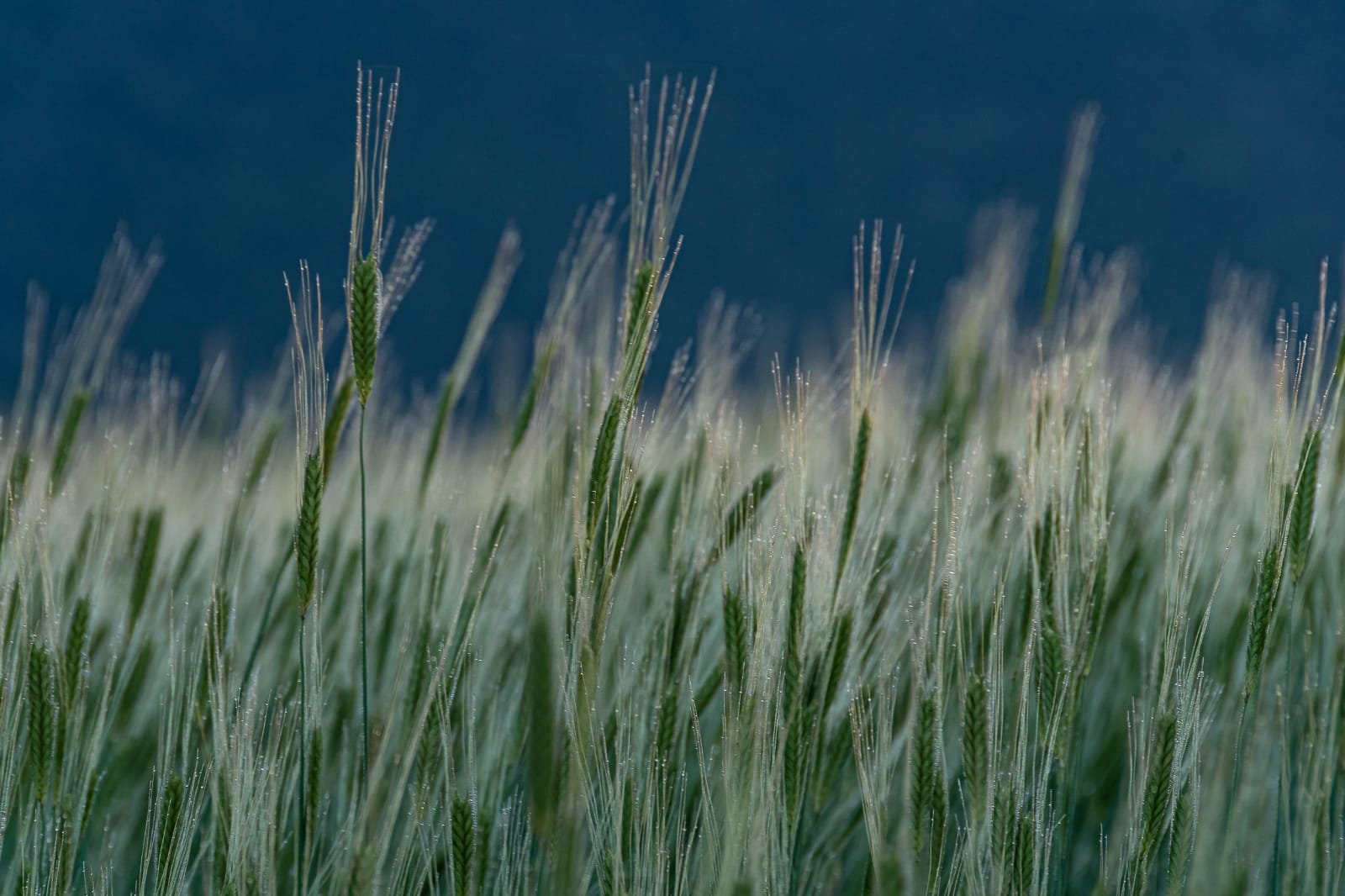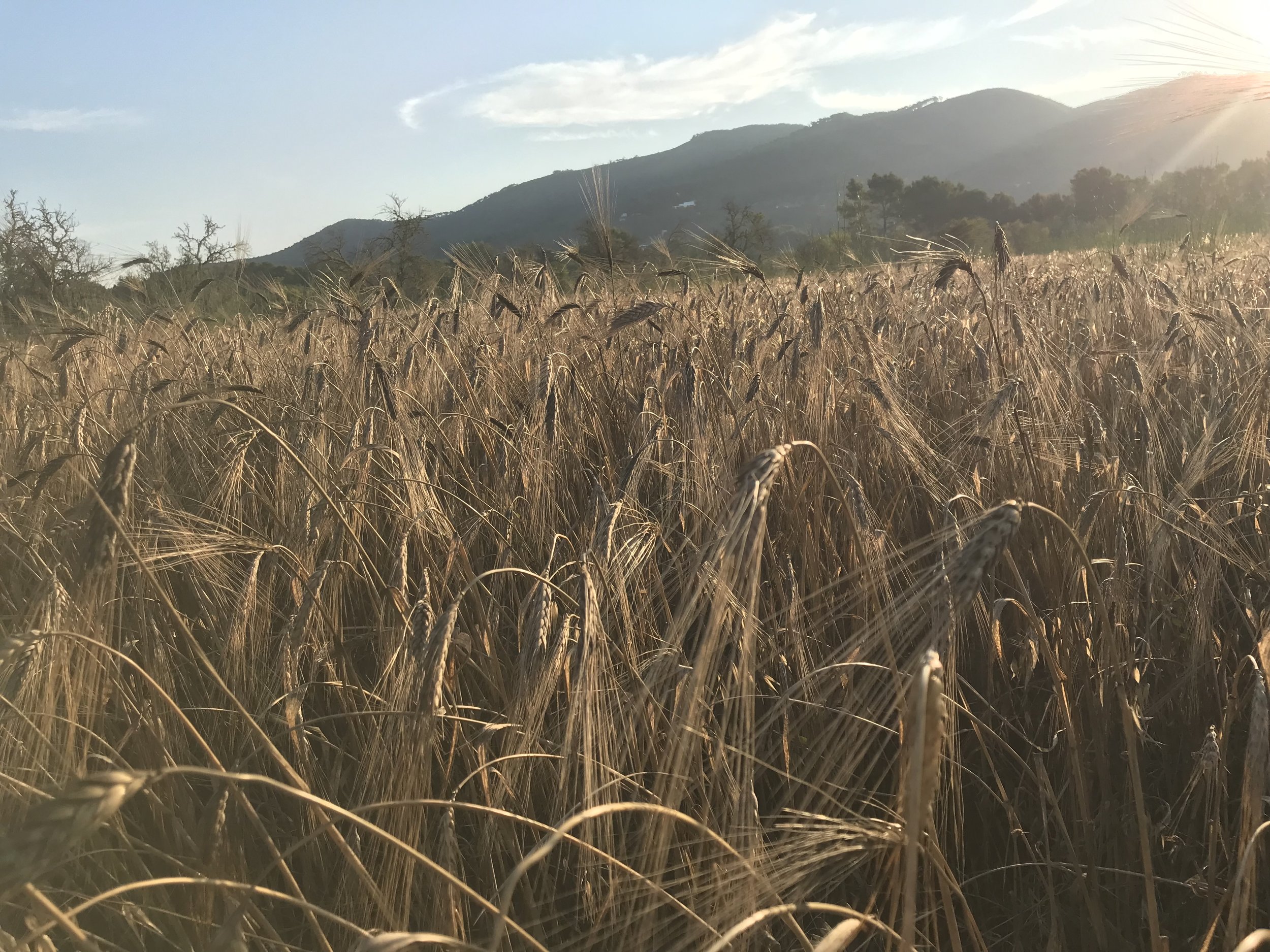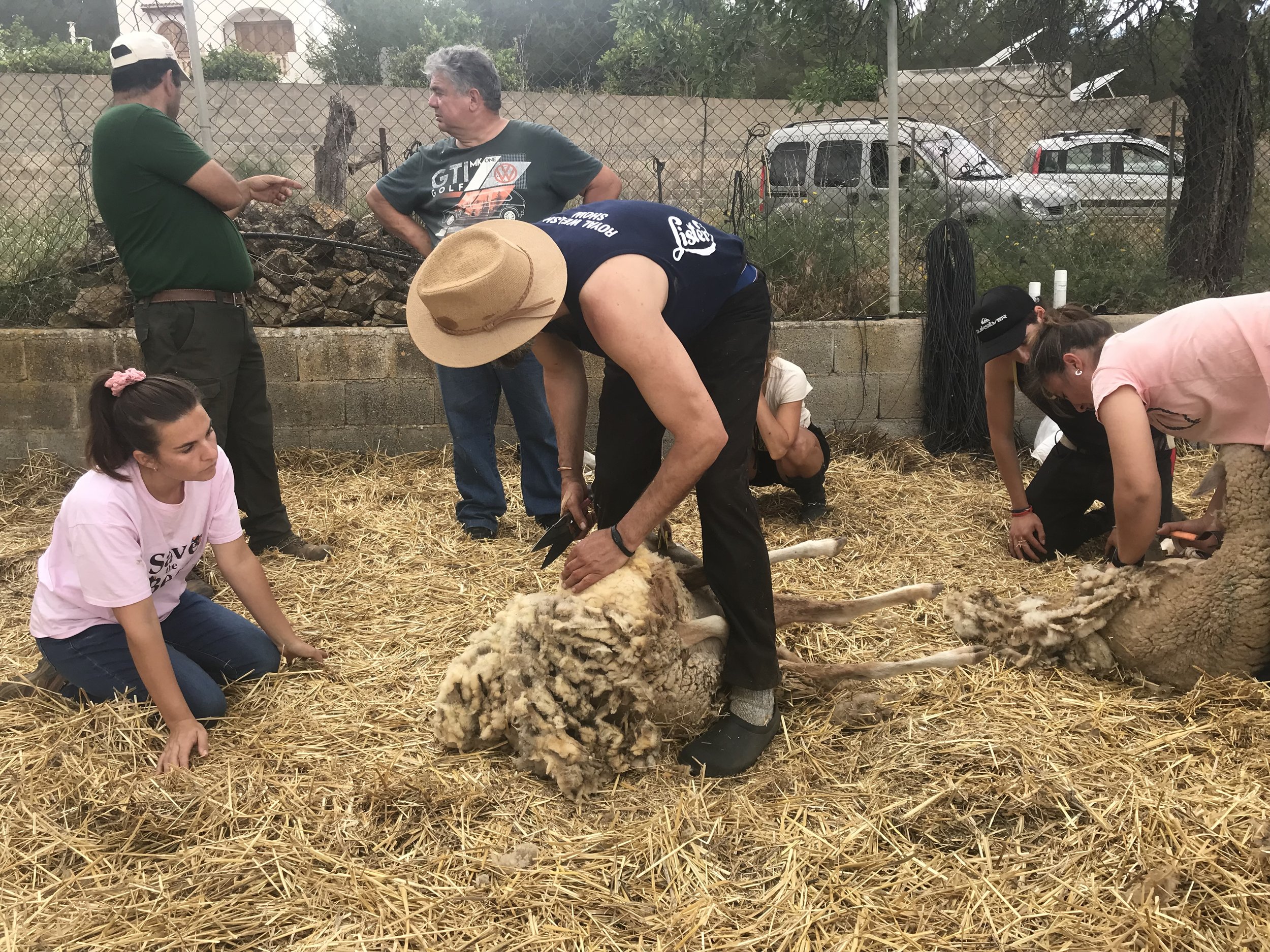
ecological
farmland restoration
Can Purtell is working as a community to create healthy thriving farmland ecosystems.
Growing community.
Before the introduction of tractors traditional farming relied on many people working together on the land. At Can Purtell we try to keep heavy machinary out of the field and when possible rely on human interventions that can be more specific, context based and have a lighter footprint on the soil and the environment.
Can Purtell aims to bring people into a deeper relationship with land through seasonal field activities. Working alongside each other in the fields is a way that we can create a land based community that actively participates in the ecological restoration of farmland and local food production.
Many species of flora and fauna have evolved alongside humans. On the island of Eivissa where 70% of the land has been traditionally farmed for thousands of years many species have been impacted by the abandonment of traditional farming practices and are suffering a lack of habitat and food resulting in population decline.
By regenerating farmland that has been left in disuse and re-introducing the farming practices that support wildlife , Can Purtell is creating a network of field ecosystems that not only provide habitat and food for local flora, fauna but also a place for humans to be agents of ecosystem restoration and find their place again in the landscape.
By growing ancient and heritage grains and selling good quality organic flour direct to local bakers and restaurants Can Purtell also grows nourishing food for humans and hopes to create a direct sales pathway that more grain growers can follow and/or collaborate with.

Land and the shared human experience belong together. Our relationship with the earth and each other is one of respect, care, humility and learning.
Field work
Field community activities last 2 -3 hours and are followed by some good food. Look out for posts on the watsap community group. From pruning or foliar treatment of carob trees, to sowing field beans.. come and be apart of land restoration
On Farm Trials & Innovation
There are many ways for people interested in research and the more scientific aspects of farming to get involved at Can Purtell. From designing and running your own farm trial to the preparation and application of bio-fertilisers or collaborating with existing trials. Can Purtell welcome’s your involvement and collaboration.
Field Observations & Monitoring Biodiversity
Are you a budding Citizen Scientist? Can Purtell is looking for volunteers to support the project with biodiversity field observations so please get in touch if you would like to spend some time in the fields identifying bird calls or looking for beetles and butterflys.
Can Purtell is part of a 9 farm group pilot project using using the Soilmentor App to record what’s happening in our soils and what flora and fauna we are seeing in our fields year round.
Education & Learning
Can Purtell regularly invites visiting farmers to the island to share their experience and knowledge. Courses are organised in collaboration with APAEEF . Become a member of Apaeef or join the Can Purtell Community group to stay informed.
(all courses are in both Spanish and English)
Join our Comunidad de Camps de Can Purtell on watsap to keep up to date on activites and sales or email Jess if you are interested in a work-away stay or if you would like to collaborate with the project.

Restoring Landscapes
Unmanaged farmland quickly turns into forest, unpruned trees can become susceptible to pests and disease, and without the presence of herbivores land that is not planted becomes dormant, compacted, and the diversity of flora decreases. The field shifts to scrubland resulting in a lack of habitat and food for the flora and fauna that rely on nature friendly and traditional farming practices. Can Purtell uses local varieties and traditional rotations to provide conditions for local flora and fauna to thrive. In order not to cut corners, use good quality organic seeds, do more farm trials on drought resilient ways of growing and to continue to recover more hectares of abandoned farmland the farm welcomes your support.
How to bring community back into the arable crop cycle?
Field visit: How to bring community, creative performance and celebration back into the crop cycle?




